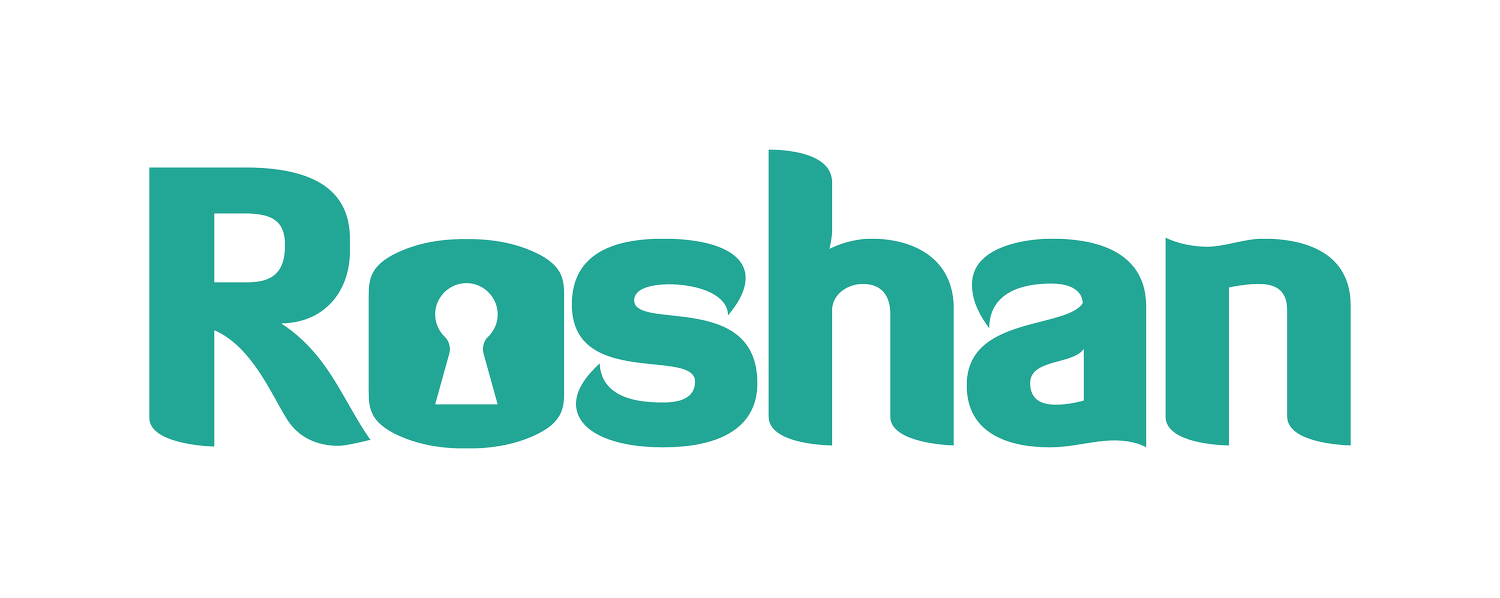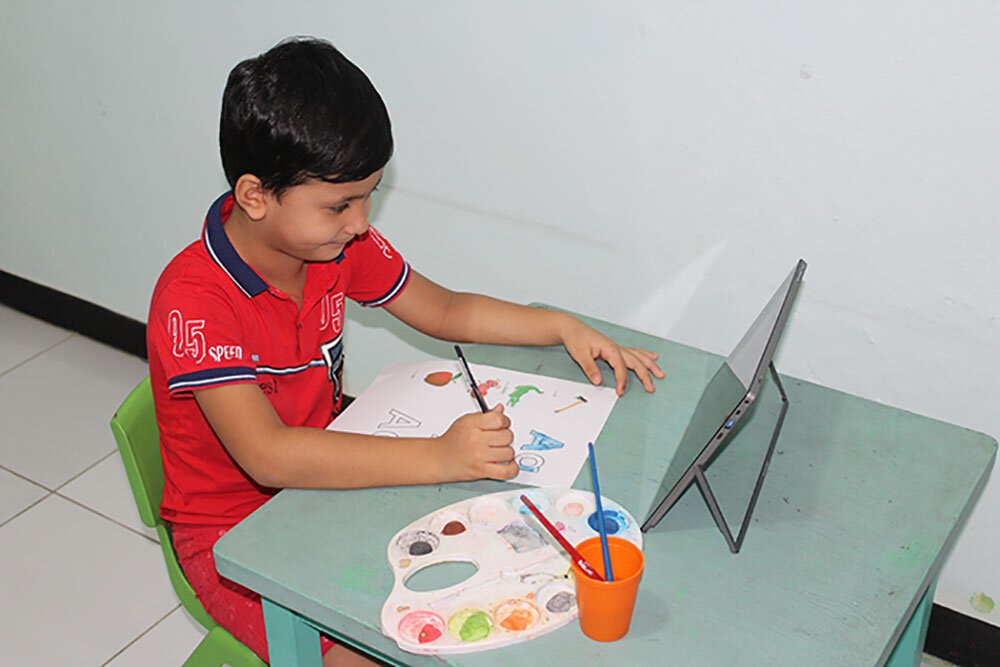Learning and Adapting in the Midst of Pandemic
When the coronavirus pandemic hit Jakarta, the Roshan community was faced with yet another disruption to their lives. In-person class cancellations and social restrictions dictated everyone to stay home indefinitely. For the Roshan community, this was especially hard, as Roshan is one of the few safe and welcoming places for refugees in Jakarta where children can learn and play, and where youth and adults can study and contribute to the community. At homes, students struggled with isolation and anxiety. “My children are sitting around all day, they feel lonely and empty”, said one parent.
While moving instruction online seemed like the most appropriate step, which many other schools had taken swiftly, the question for us was how do we do this with the constraints that we have? This started the learning journey that brought everyone together. We started to engage in discussions, and more questions were borne and reflected upon: What are the most important things for students during these times? What would be the most helpful and feasible? Meanwhile, as the planning for a full remote program was in motion, teachers continued to engage the students by sending them learning packets along with scheduled individual calls to help them learn and complete the packets.
Two main issues were identified: First, the students do not have adequate resources and technology at home. Second, classes would need to be restructured to support learning remotely.
While the majority of the students did not have a computer at home, there was at least one smartphone in each family, not ideal but enough to access virtual meeting applications. Lessons were then designed so that students could access them with a basic smartphone. Learning packets that correspond to the lessons were sent to students’ homes so they could also do work off-screen, along with delivery of small desks and phone stands.
“Studying online is not that hard because the teacher teaches well. What I like about the class is the reading activity, and also the games that we play at the start of the class. The online class helped me to be more social and active during the pandemic.”
Hajar, a Middle School Student from Afghanistan.
“When the pandemic hit, it was hard to stay at home and do nothing but eat and sleep. I felt happy when the online classes started because I was able to see my friends. I enjoyed the games we played in the class. I am happy that I get to have fun with my friends and teacher. I wish to see my friends when school starts.”
Hassan, a Middle School Student from Yemen.
The teaching team worked closely to explore a variety of ways to adapt the instruction online. We reviewed lesson plans, discussed virtual classroom management approaches, learned various new tools such as Zoom, Google Drive, and Seesaw. “It was a bit difficult because I didn’t know how to teach online, but as I learned, I gained more confidence”, says Moon, a Math teacher from Iraq.
Further adjustments were then made: we reduced the class size so that each class had a maximum of ten students and added three new teachers. ‘Small group time’ within the class period was adopted to ensure the different learning needs were met. Most importantly, we made sure that students feel connected, hence our emphasis on social emotional learning.
Ahmad, a Middle School teacher from Afghanistan says, “We had to find the ways to show the students that we can study and have the fun that we used to have in Roshan before the pandemic. We’ll have lessons, activities and games to make the class more interesting and exciting.”
Parents too, stepped up to do their part. Having the key role of supporting the child’s learning and providing a conducive learning environment at home, they learned the tech skills needed, arranged a study space, and communicated regularly with the teachers to adapt to the new changes.
When the full remote learning program was launched in August, the classes were filled with excitement. Buzzing conversations and the giggles of children were heard again. Each day, despite the inconvenience of connecting from their small devices, or the challenge of studying in a shared room, our students showed up. They read, count, and submit their homework. They show off their toys and newly discovered Zoom filters. And when routine assessments were performed at the end of the term, teachers found that students continued to make meaningful academic progress even during remote learning.
Tia, a 7-year old Lower Primary student says “Before we started online class, it was very sad, because I can’t see my friends and a lot of other stuff that was making me sad. But when we started, I was glad because I could see my friends, read books and learn Math, my favorite subject!”
In December, a surprise came our way. We learned that our response to the pandemic won the 2020 NGO Innovation Award from Geneva-based UNHCR, representing the Asia-Pacific region. The teaching team celebrated the news with joy. While no one thought of doing the work for awards, the prestigious recognition was an affirmation, especially for the dedicated teachers who work tirelessly despite facing their own challenges as refugees during the pandemic.
Today, if you enter a Roshan virtual class, you will find the same vibrant community: a resourceful teacher and a group of students who want to share the joy of learning with one another. Despite an especially challenging year, the community has once again stepped up and given strength to one another.
“To be honest, it was strange at first because I didn't have any experience of teaching online classes. Everything was new for me so I wasn't familiar with the tools. But I quickly learned and got used to them. I am really grateful to Roshan Learning Center who gave me an opportunity to teach online classes from home”
Ashraf, Upper Primary English Teacher from Pakistan







